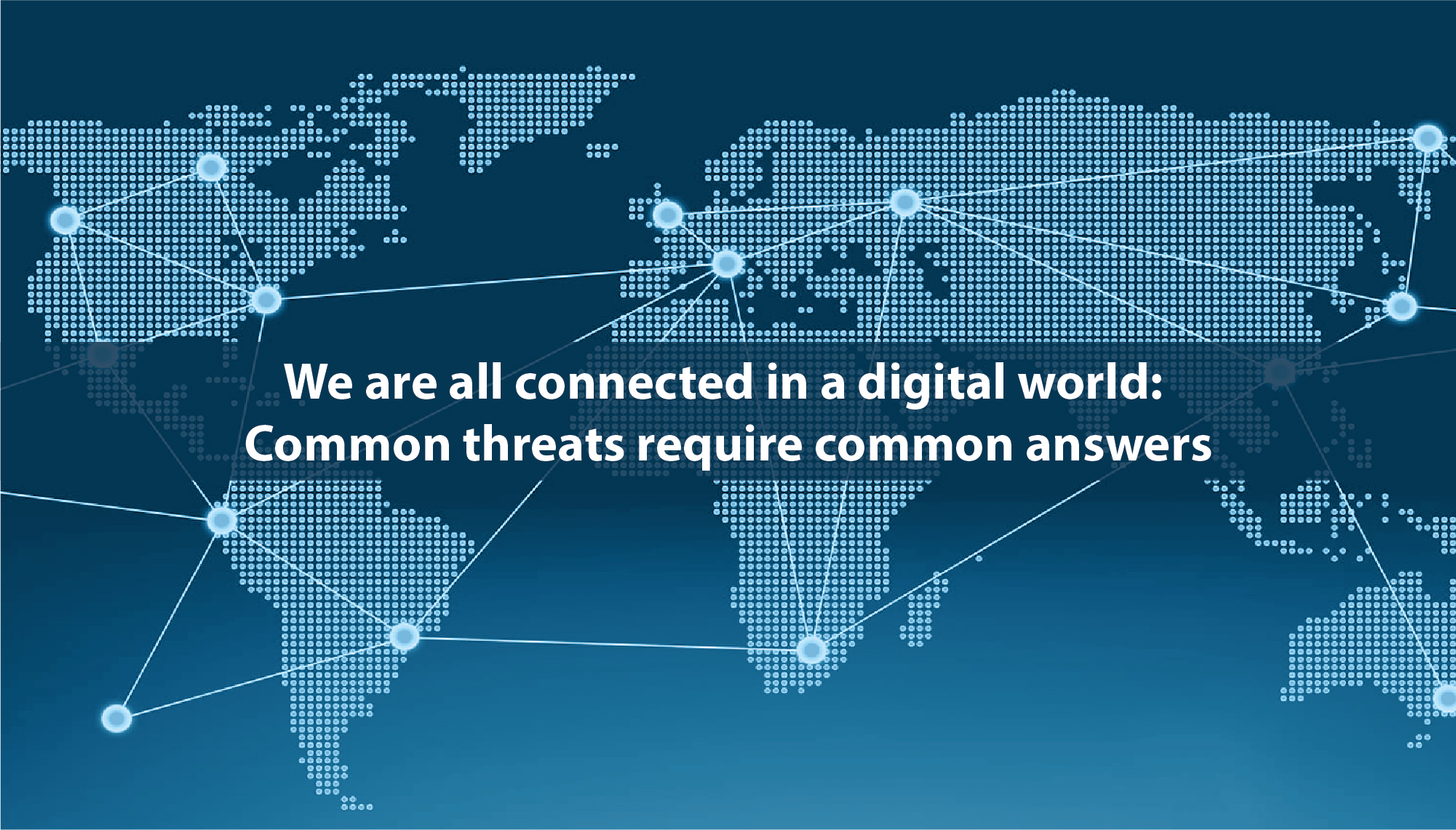
We are all connected in a digital world: common threats require common answers
Latin America and the Caribbean have presented one of the fastest rates of Internet growth since the beginning of the century. With a more than 2000% increase in the number of Internet users between the years 2000 and 2018, this access has brought numerous opportunities for the region. However, this growth has also created new cyber threats, requiring the development of public policies to protect users and ensure a secure and open Internet for all.
Tackling the complex set of growing cyber threats and responses necessarily involves all efforts from governments, law enforcement agencies, private sector actors and international organizations. ARIN and LACNIC have both placed special focus on supporting cybersecurity in their respective regions, this is why they are both collaborating with the Organization of American States (OAS) in its work to support and strengthen the cybersecurity in Latin America and the Caribbean.
As the world’s oldest regional organization, and the region’s primary political forum, the OAS brings together 34 independent states of the hemisphere and 72 Permanent Observers. Established in 1948 to promote peace and justice, sovereignty, territorial integrity and independence among its Member States, the work of the OAS today is built on four platforms: democracy, human rights, security, and development.
Under the security pillar, the Inter-American Committee against Terrorism (CICTE) seeks to prevent and counter all forms of terrorism in the region by promoting the exchange of information and experiences, and by assisting Member States in strengthening their capacity to respond and/or mitigate the impact of a potential incident, including cyber-incidents.
The OAS CICTE Cybersecurity Program is built around three main pillars:
1) Public Policies: By supporting Member States in their efforts to develop national or regional cybersecurity strategies. These strategies involve all relevant stakeholders and are adapted to the legislative, cultural, economic and structural needs of each country.
2) Capacity building: By helping to establish and/or develop national Computer Security Incident Response Teams (CSIRT) and provide personalized technical assistance to strengthen national and regional cyber-response capacities. Furthermore, CICTE provides training and other professional development opportunities to encourage a cybersecurity workforce.
3) Research and Outreach: By developing –in collaboration with Member States, the private sector and academia– technical documents, toolkits, white papers and research-based reports that highlight current developments and identify key cybersecurity challenges in the region.
CICTE cooperates with a network of partners, including other international, regional and sub-regional organizations, to achieve its goals. For example, in consultation with the United Nations Office for Disarmament Affairs (UNODA), the OAS has been participating in and hosting regional consultations to support implementation of UN General Assembly Resolution 73/266 and to encourage the exchange of views for advancing responsible state behavior in cyberspace within the context of international security.
As a result of CICTE’s cybersecurity work in the region:
- More than 20,000 people have increased their cyber skills, including in critical infrastructure protection, cyber incident response, and measures to counter the use of Internet for terrorist purposes, among other areas.
- 12 Member States have a cybersecurity national security in place and six more are in development
- Four toolkits, six white papers, eight regional reports and two national reports have been developed and published to give Member States the data needed to formulate effective public policies.
In the past 15 years, CICTE has made important contributions to develop the capacity of its Member States to detect cyber threats and prevent, identify, respond and recover successfully from cyber incidents, and to improve the exchange of information and cooperation among cybersecurity stakeholders at the national, regional and international levels.
CICTE will also continue efforts to support OAS Member States by facilitating information about cyber threats and risks; by encouraging greater partnerships among public, private and civil society stakeholders such as ARIN and LACNIC; and by encouraging every individual user of their responsibility to contribute to a safer and more secure cyberspace.
Together, these initiatives help deepen alliances, build capacity and strengthen the security and resilience of the networks in the region. Stronger and more resilient networks create a safer and more secure global Internet.
Recent blogs categorized under: Caribbean
GET THE LATEST!
Sign up to receive the latest news about ARIN and the most pressing issues facing the Internet community.
SIGN ME UP →Blog Categories
Public Policy • RPKI • Caribbean • Outreach • Elections • ARIN Bits • Grant Program • Tips • Fellowship Program • Training • Security • Updates • IPv6 • Guest Post • Data Accuracy • Business Case for IPv6 • Internet Governance • IPv4 • Customer Feedback • IRR


